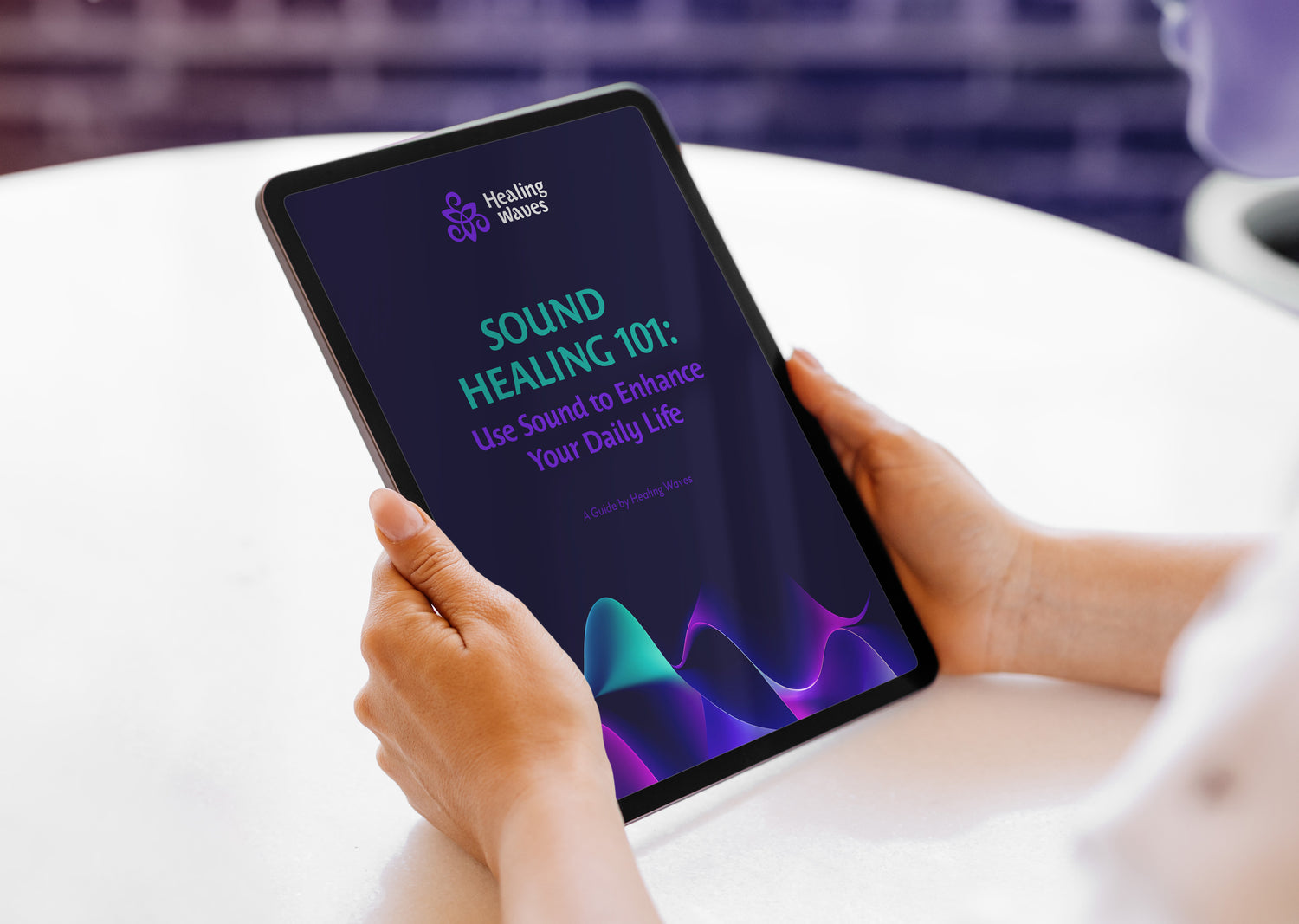Did you know there are many benefits listening to relaxing music?
In this article, we explore the effects of listening to relaxing music and learn about the power of relaxing music to improve our physical, mental, and emotional health.
Listening to relaxing music can have a tremendous effect on our minds and bodies, especially slow, quiet and relaxing music. This type of music can have a beneficial effect on our physiological functions, slowing the pulse and heart rate, lowering blood pressure, and decreasing the levels of stress hormones. Relaxing Music, in short, can act as a powerful stress management tool in our lives.
Music has many wonderful benefits for stress management and overall health. It can help you calm your physiology without making a conscious effort, and that can alleviate stress from your mind. Music can also lift your mood, slow your breathing, and create other stress-inducing changes.
“You have to, take a deep breath. and allow the music to flow through you. Revel in it, allow yourself to awe. When you play allow the music to break your heart with its beauty.”
Kelly White
What makes music relaxing?
According to researchers, listening to music triggers the release of dopamine in your brain. Dopamine is a neurotransmitter that promotes feelings of happiness and excitement. Music can have a profound effect on both the emotions and the body. A slower tempo can quiet your mind and relax your muscles, making you feel soothed while releasing the stress of the day.
What kind of music relaxes you?
Generally, music that has a slow tempo can help calm your mind and help your muscles relax. However, various sounds of nature like flowing water or chirping birds can have a similar relaxing effect as well.
Solfeggio Frequency MusicSince then 440 Hz tuning has become the norm. The 432 Hz frequency resonates with the Schumann Resonance of 8 Hz and is known for its deeply calming and soothing effects. A recent double-blind study from Italy showed that music tuned to 432 Hz slows down the heart rate when compared to 440 Hz.
Nature MusicListening to the sounds of nature, like waves crashing or a babbling brook, has been shown to enhance cognitive function and concentration. Nature sounds work best when they’re soothing sounds, such as flowing water or rainfall, while more jarring noises such as bird calls and animal noises can be distracting. The enduring pastimes of camping and backyard sleepovers under a starry sky are so comforting for the soul. Whether it’s the wind blowing through leaves or birds singing their morning song, the sounds of nature help us relax.
Calming musicEven with access to an endless variety of sleep sounds, relaxing music remains one of the most beloved sounds people like to fall asleep to. Calming music has been shown to promote better sleep in individuals with sleep challenges and decrease depressive symptoms, which may also interfere with quality sleep.
Classical musicJust as fast, upbeat music may provide a burst of energy while exercising, slower music has been shown to be more relaxing. Classical music, in particular, can help slow the pulse and heart rate, as well as decrease levels of stress hormones.
“Music brings a warm glow to my vision, thawing mind and muscle from their endless wintering.”
Haruki Murakami
Effects of Listening to Relaxing Music
Relaxing Music reduces stress and eases anxiety. Relaxing Music has a unique link to our emotions, and research has found that it can be used as an extremely effective stress management tool. Just like listening to slow music to calm the body, music can also have a relaxing effect on the mind. Relaxing Music reduces stress and helps you relax; it’s one of the major health benefits of listening to music.Eases pain. In studies of patients recovering from surgery, those who listened to music before, during, or after surgery had less pain and more overall satisfaction compared with patients who did not listen to music as part of their care.
Improves mood. Studies show that listening to music can benefit overall well-being, help regulate emotions, and create happiness and relaxation in everyday life.
Provides comfort. Music therapy has also been used to help enhance communication, coping, and expression of feelings such as fear, loneliness, and anger in patients who have a serious illness, and who are in end-of-life care.
It helps us sleep better at night. We’ve all done it before. We lie down in bed, turn off the lights and immerse ourselves into the peaceful, warm, wonderful world of music. Listening to relaxing music at night helps us sleep better. It helps us release our worries and those exhausting thoughts that often feed anxiety.
Improves memory. Research has shown that the repetitive elements of rhythm and melody help our brains form patterns that enhance memory. In a study of stroke survivors, listening to music helped them experience more verbal memory, less confusion, and better focused attention. Students often have the experience of learning better when they listen to music. Although there are many explanations to it, it is seen that students trained in music learn better while listening to music.
Relaxing music for studying.Relaxing music optimizes our cognitive processes. We concentrate and process information better, and retain new information more quickly and efficiently. As we said, our brain loves balanced, harmonic musical stimulation. There are actually frequencies that can help our brain work better.
It improves brain functioning. Our brain is passionate about music. We know, for example, that playing an instrument starting early on helps our brain develop and even improves mathematical performance. Relaxing music is almost like a vitamin for our neurons.
Your heart also appreciates relaxing music. We talked before about the benefits of listening to relaxing music after surgery. One reason is that it is good for our heart. It lowers our blood pressure and heart rate. Our heartbeat becomes more regular and rhythmic, we have fewer arrhythmias, and we feel calmer.
Mindful Meals. Experts agree that being relaxed and eating slowly plays a key role in the digestion process. Relaxing music creates a tranquil environment for you and your family that makes mealtime a healthier and more pleasurable experience. Also, a recent study showed that eating quickly contributes to weight gain, so listening to peaceful music at mealtimes can help keep extra weight off as well.
It will help you meditate. Learning to meditate is not easy, especially if your life is nonstop busy. Sometimes when we try to find some relaxation by meditating, it doesn’t work. One thing that can help is relaxing music. Just find a quiet space, put on some comfortable clothes and some headphones, and let yourself go.
“When I hear music, I fear no danger. I am invulnerable. I see no foe. I am related to the earliest times, and to the latest.”
Henry David Thoreau
Soothing Music exerts a powerful influence on human beings. It can boost memory, lighten your mood, reduce anxiety and depression, improve your response to pain, and help you meditate effectively. Relaxing Music is an incredibly therapeutic tool for emotional health, daily performance, and sleep. It has been used as a healing therapy for most of human history.
Take advantage of the magic of Healing Waves Relaxing Music. It helps you achieve less stress and gain a better life!
Join our Community now, Facebook Community or Instagram Community
P.S- You Can Combine Yoga Equipment, Meditation Music or Meditation Tools to boost and to gain more from your Yoga and meditation practice.



1 comment
I’m glad you mentioned how playing relaxing music will help us eat slower, which in turn helps with our digestion process by making us eat more mindfully and healthier. I’m meeting a friend for dinner tomorrow, and she asked me to choose a restaurant with live music. I’ll keep this in mind while I look for restaurants with live music around Jasper. https://www.oldmulehouse.com/calendar